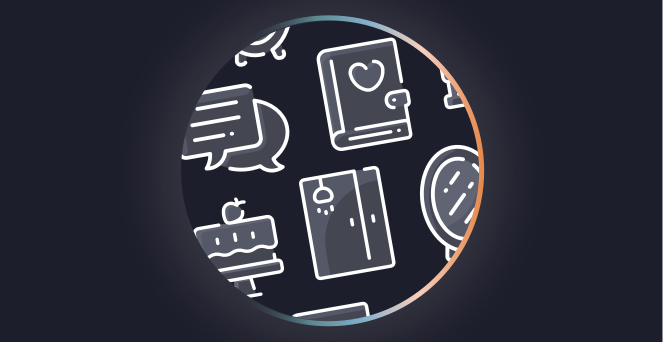
Welcome to MENTOR360’s Wellness Challenge, made up of 5 days of wellness tasks
Written for MENTOR360 by Carlie Barlow
Welcome to MENTOR360’s 5 day Wellness Challenge, each day has a new and different task to complete. Take some time each day to read through the challenge and complete the task. Committing to wellness tasks can support you to improve your overall health and wellbeing.
Feel free to revisit any of these tasks on a regular basis, these can then form part of your daily healthy habits.
Day 1 – Use Positive Affirmations

Affirmations are statements that you think or say. We all go through our days affirming things but doing this with a purpose and keeping them positive is key to enhancing your wellbeing!
- Affirmations need to be realistic.
You need to really feel what you’re affirming. For instance, if your affirmation is ‘I am strong’ but you currently don’t feel that’s true then try ‘I can be strong’. You can always tweak your affirmations, to begin with, and use ‘I am willing to be stronger, or I can be strong, or I choose to be strong, and then when you feel ready, take those out and you’ve got, ‘I am strong!’
- Affirmations need to be in the present tense.
Being in the moment and choosing the ‘now’ is so important. Don’t wait for tomorrow, act now! Using ‘I am’ is always a great way to be in the present moment.
- Affirmations need to be positive.
It’s self-explanatory- attract all that will serve you well!
We have 10 positive affirmations to share with you:
‘I am calm’
‘I invite peace into my life’
‘I am grateful for …….’
‘I am worthy’
‘I am kind’
‘I am brave’
‘I am loved’
‘I am grateful for ….. today’
‘I know my potential’
‘I welcome abundance’
We’d like you to choose one affirmation from above that you feel resonates with you and take 5 minutes to focus on it by sitting, closing your eyes, and repeating it on every out-breath you take. We’d then like you to think of one for yourself and write it down. Use your affirmation throughout the day and keep reaffirming this for as long as you need.
Day 2 – Practise Mindful Communication

How often have you had a conversation with someone whilst not really listening? Instead, you’ve been thinking about where you need to go next, what’s for lunch, where’s your phone, etc… only to realise you can’t remember what the person was talking about!
Most people only retain 25% of what they hear in conversations as their mind is so distracted with other things.
Why is mindful communication so important?
Mindful Communication is a way to truly connect, understand and learn from the people around us.
It helps us to build better relationships and a greater sense of confidence as we fully engage in the present moment and events.
As well as listening well it is important to be truthful when you speak. When we engage in conversation we are opening a space and holding it for the other person to feel welcomed, comfortable and at ease and if you maintain your true authenticity it is most likely the other person will do that with you too.
Without overthinking it, just make a conscious effort to both talk and listen today to others and listen to the way you talk to yourself today and see what impact that has for you.
Our top tips to listen mindfully;
- Being present – your focus should be on the person you are listening to, remove any distractions, try not to engage in any inner dialogue, allow any thoughts to pass by, and stay focused on what they are saying
- Cultivating empathy – we often see the world through the lens of our own experiences, personality, and beliefs, today try to validate their response by acknowledging their opinion, we all have different perspectives, you don’t always have to agree, just acknowledge others opinions.
- Simply ‘listen’. Listen carefully and attentively, pay complete attention to the other person, and enjoy practicing mindful communication.
Day 3 – Random act of kindness.

A random act of kindness is an unexpected act of charity or helpfulness and is often done for a stranger, family, or friend.
The term random act of kindness refers to selfless acts, both large and small, that are committed unexpectedly, without prompting, and with no ulterior motive.
Benefits can include;
- Giving makes you feel good and improves your mood.
- Studies have shown people who are kind and compassionate are usually the most successful.
- Random acts of kindness don’t just benefit the ones you gift, but also help your own mental health.
- When you are grateful and practicing random acts of kindness… the result is inner calm, clarity of thinking, and a heart full of love.
Physiological benefits;
- Strengthened immune system
- Improved cognitive performance
- Increase in energy
- Lower heart rate
- Balanced cortisol levels result in less internal stress
- More likely to live a longer and more satisfying life
- Laughter and inner joy resulting in decreased stress hormones; lower blood pressure; lower pain levels
When people benefit from kindness they “pay it forward” by helping others who were not originally involved, and this creates a cascade of cooperation that influences dozens more in a social network.
Here are a few of our suggestions:
- Send a handwritten letter to someone you care about.
- Thank someone who provides a service to you, or has been a good friend to you.
- Make a larger dinner and pop a plate on the doorstep of a friend or family member.
- Pay someone a compliment.
- Bake a cake for a neighbour or friend.
- Take a bunch of flowers around to a family member.
- Send a video message to a friend to let them know you’re thinking of them.
As always, we’d love to hear what you’ve been up to today, so please feel free to share with us via social media @wearementor360
Day 4 – Start a gratitude journal

We challenge you to write down at least 3 things you’re grateful for each day.
By acknowledging everything you are grateful/thankful for you are choosing to focus on the positive things in your life, and this outlook will make you feel happier.
For many of us, our mind can drift and tend to focus on problems or negative criticism, it’s easy to become far too attached to that. Those negative thoughts won’t serve you well.
If you look to the positive things happening around you right now, you will suddenly feel like a weight is lifted off your shoulders, and you realise you have everything you need, it teaches us to focus on what is truly important.
You may think that acknowledging things you are grateful for is enough?! But, when you start to write this down, it trains the brain to focus on the positive things in your life, it’s proven to help lower stress levels, and provide better quality of sleep
Our of top tips:
- Use a book you’d like to write in, and keep it in a suitable place (one you will remember and can easily reach!)
- Take a few minutes to think about what you’re truly grateful for, and then write them down. You may wish to simply list the things you are grateful for or you may suddenly write in more detail…go with what feels good for you!
- Write in your journal at whatever time that feels good for you.
- Going back to the basics of having good health, family, food, drink, a roof over your head… you realise what truly matters, and your outlook on life will become more positive…
Once you get into the habit, you can write in your gratitude journal each day and review it at the end of the week or month. You could even start a gratitude jar, where you add your entry into a jar and then open it at the end of the year as a wonderful reminder!
Day 5 – Take a cold shower!

Many people prefer warm showers to cold showers. However, studies have shown that using cold water may be beneficial to physical and mental health.
Benefits can include;
- Increased metabolism – Cold water increases the body’s metabolism because it has to work harder to maintain a stable temperature.
- Feeling alert – Cold showers create a sense of invigoration and alertness, which may prompt a person to be more physically active.
- Stronger immune system – A recent study concluded that cold showers might make a person’s illness feel less severe, allowing them to continue with their daily activities. This led them to conclude that cold water triggers the body’s immune system regardless of duration.
- Boosted mood – Some researchers theorise that cold showers can have mood-boosting benefits. As cold showers activate the sympathetic nervous system and increase the availability of neurotransmitters, people may be less likely to experience depressive symptoms after a cold shower.
- Quicker cooling after sports activities – Cold water immersion therapy (submerging the body in ice or a cold bath) is a common practice in many athletic activities. Cold temperatures can quickly relieve heat exertion and reduce inflammation.
- Improved physical recovery – Cold water immersion and contrast water therapy (first using hot water, then cold) can help enhance recovery and reduce feelings of fatigue.
- Reduced pain – Exposure to cold water can cause the blood vessels to constrict, which can help reduce any swelling and edema that causes pain. Coldwater can also slow the speed at which nerve signals conduct impulses. This can reduce the rate at which nerves transmit pain signals to the brain, which can lower a person’s perception of pain.
How to get started;
- Start by taking a warm shower and then switching the water to cold for a brief time. This could be anywhere from 30 seconds to 2 minutes.
- Then, you may prefer to take just a brief cold shower of around 5–10 minutes.